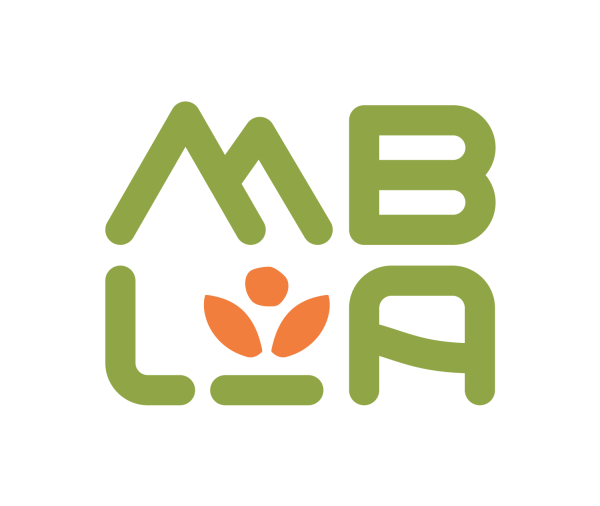Agricultural terraces, such as these in Annamer (High Atlas),are where much of local agriculture is practiced (Photo credit: Pommelien da Silva Cosme)
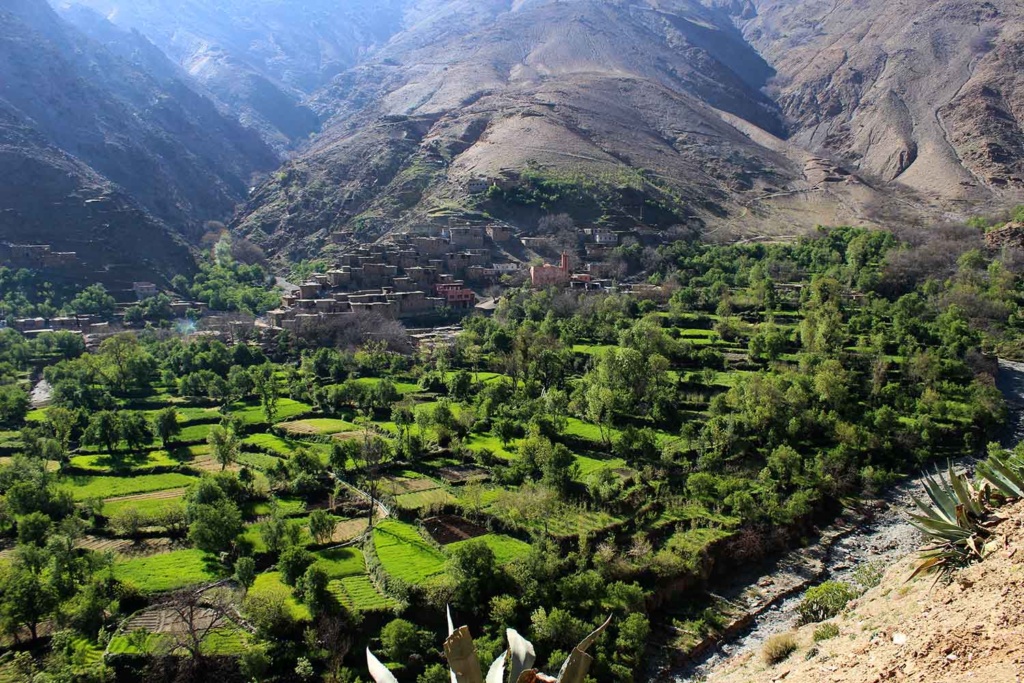
SUPPORTING AMAZIGH FARMERS FOR THE CONSERVATION OF LOCAL AGROBIODIVERSITY IN THE MOROCCAN HIGH ATLAS
Article in The Darwin Initiative. Supporting Amazigh farmers for the conservation of local agrobiodiversity in the Moroccan High Atlas. Darwin Initiative Newsletter, December 2020, p.7-8
The iconic cultural landscapes in the Moroccan High Atlas harbour significant biological and cultural diversity. In recent years, we observed the erosion of traditional agricultural knowledge, adaptive local practices and plant genetic resources through our work with Amazigh communities. In 2013, we launched our High Atlas Cultural Landscapes programme to support their efforts to maintain and restore traditional practices,enhance livelihoods and sustainably manage lands and resources. Since the beginning, this programme has benefited from funding from the Darwin Initiative, including our current project that supports local Amazigh farmers to improve agricultural productivity, select new drought-adapted crops and conserve traditional varieties for improved food security.
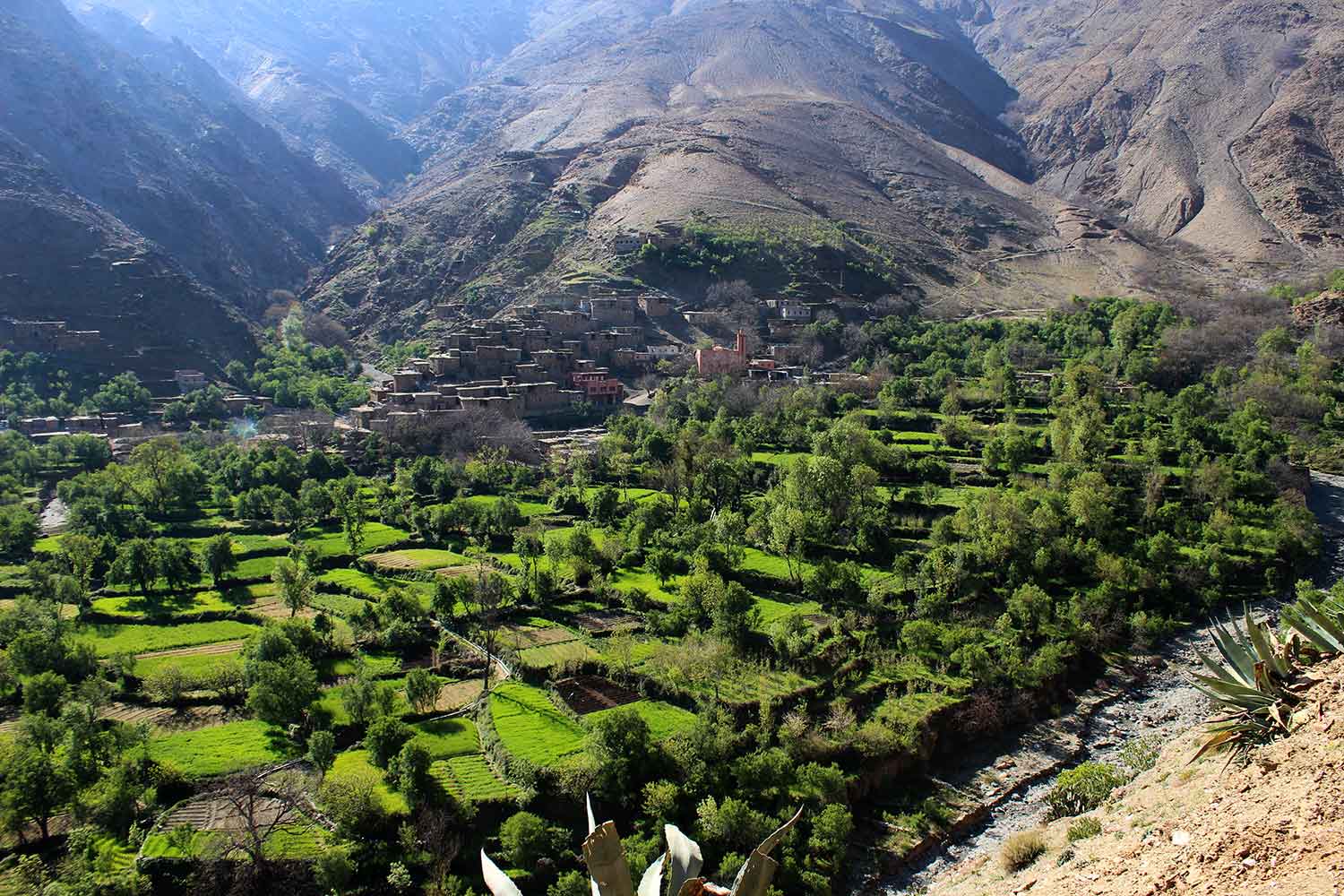
We launched our Farmer Field Schools programme in 2019, which provides in-the-field training for Amazigh farmers to enhance their knowledge of innovative organic pest, soil and water management techniques and methods to improve productivity and enhance local biodiversity, while maintaining their traditional practices. The first one, which focused on soil health and fertility, increased their understanding of soil conservation practices and techniques that are beneficial for the environment.
“I learned techniques that are all new to me,” said Aziz Ait Ouakrim, a local farmer from Annamer after the two-day farmer field school. “I learned how to prepare an organic liquid fertilizer with alfalfa (Medicago sativa). Despite the fact that alfalfa grows abundantly here in Annamer, I’ve never used it to fertilise my plots,” he adds. Together with Aziz and other farmers, we also addressed the usen of animal manure to increase soil quality. Our team learned that local farmers in Annamer don’t prepare or use mature compost to fertilise the soil, but often use animal manure directly, while it’s still fresh. This practice could potentially harm crop production, increase the amounts of weeds and attract plant pests. Our team demonstrated techniques to compost mature animal manure and other organic materials that are available around their plots such as dead tree leaves.
Through these trainings, we activate local networks for ongoing mutual learning and exchange and identify opportunities for community cooperatives to improve the commercialisation of their products. In collaboration with local agroecology initiatives, we support rural producers and entrepreneurs to engage with urban customers and market their locally-selected and climate resilient crop varieties to urban-based boutiques, restaurants and guesthouses that value High Atlas agrobiodiversity. The emergent networks within the urban gastronomic scene provide important opportunities for rural entrepreneurs to valorise their unique High Atlas food products, while boosting rural incomes.
In addition, we carry out research on the characteristics and availability of local seed varieties and traditional crops and cereals to support farmers to make informed decisions about crop diversity and the management of their agricultural plots. We identified five locally important, genetically diverse crops included in the Multilateral System of the International Treaty on Plant Genetic Resources for Food and Agriculture (ITPGRFA): alfalfa, fava bean, pea, barley and durum wheat. Unfortunately, these legumes and cereals are increasingly threatened by agricultural intensification, land abandonment and rural exodus, despite their direct and indirect economic importance and role in traditional cuisine. Through our Darwin-funded project Conserving High Atlas agrobiodiversity to improve Amazigh livelihoods in Morocco, we promote sustainable cultivation of these promising crop varieties to support their conservation, strengthen food security and improve community well-being.
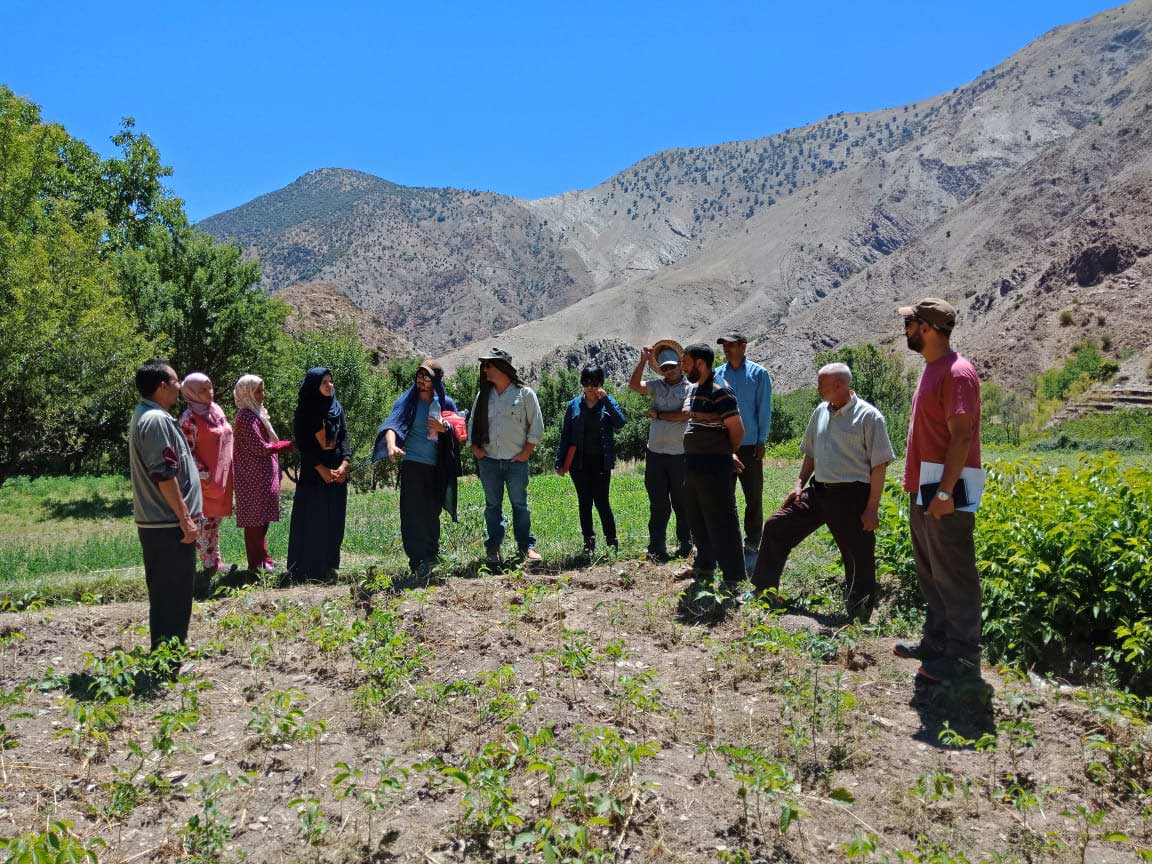
Discussion with Amazigh farmers to identify their challenges and needs in advance of the Farmer Field Schools (Photo credit: Rachid Ait Babahmad)
Contact Us
contact@mblaasso.ppr.webmobile.ma
+212 (0) 808 558485
The Moroccan Biodiversity and Livelihoods Association is a non-governmental non-profit association registered in Hay Mohamadi zone, Marrakech under the n° 470.
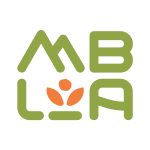
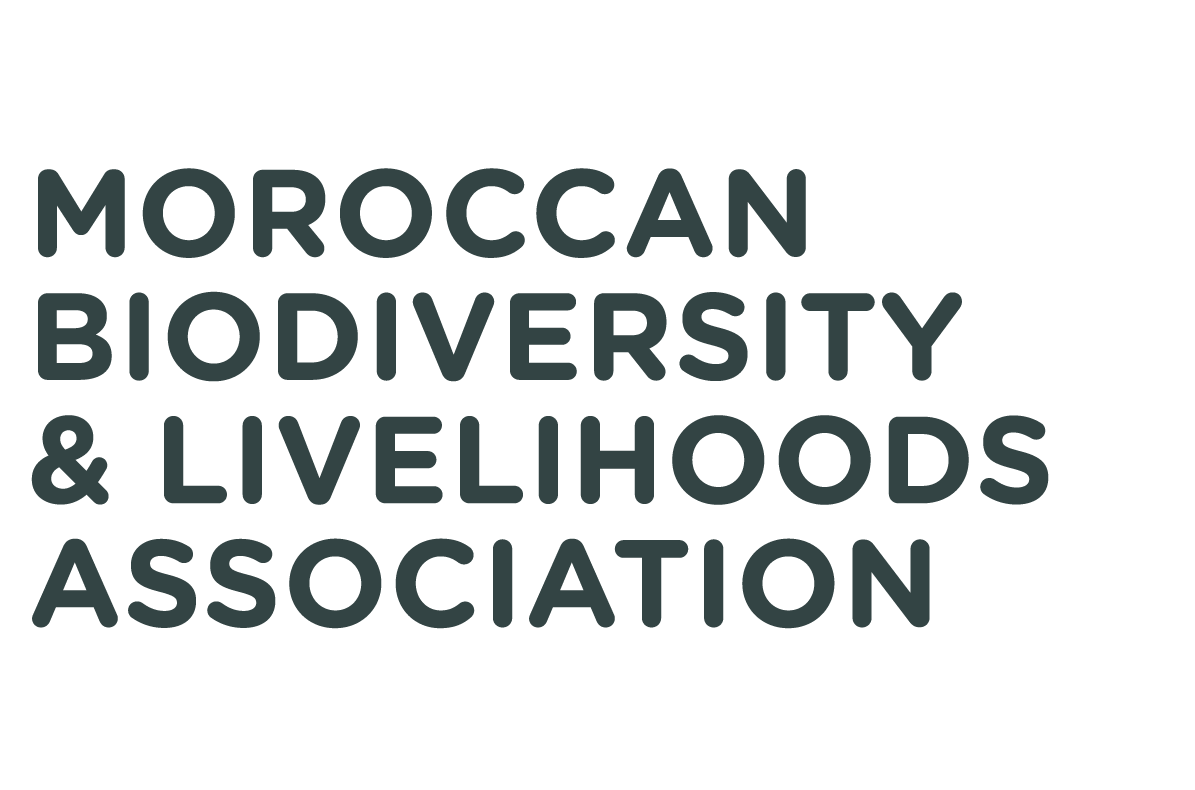
Join our mission. Volunteer, Donate, Advocate, Get started today.
Copyright @ 2024 MBLA
Contact Us
+212 (0) 808 558485
The Moroccan Biodiversity and Livelihoods Association is a non-governmental non-profit association registered in Hay Mohamadi zone, Marrakech under the n° 470.


Join our mission. Volunteer, Donate, Advocate, Get started today.
Copyright @ 2024 MBLA
Contact Us
1Rue Houcima, Villa N° 280, 1er étage, Marrakech, Morocco 40000
contact@mblaassociation.org
+212 (0) 808 558485
The Moroccan Biodiversity and Livelihoods Association is a non-governmental non-profit association registered in Hay Mohamadi zone, Marrakech under the n° 470.
Email us on contact@mblaassociation.org
Copyright @ 2024 MBLA
